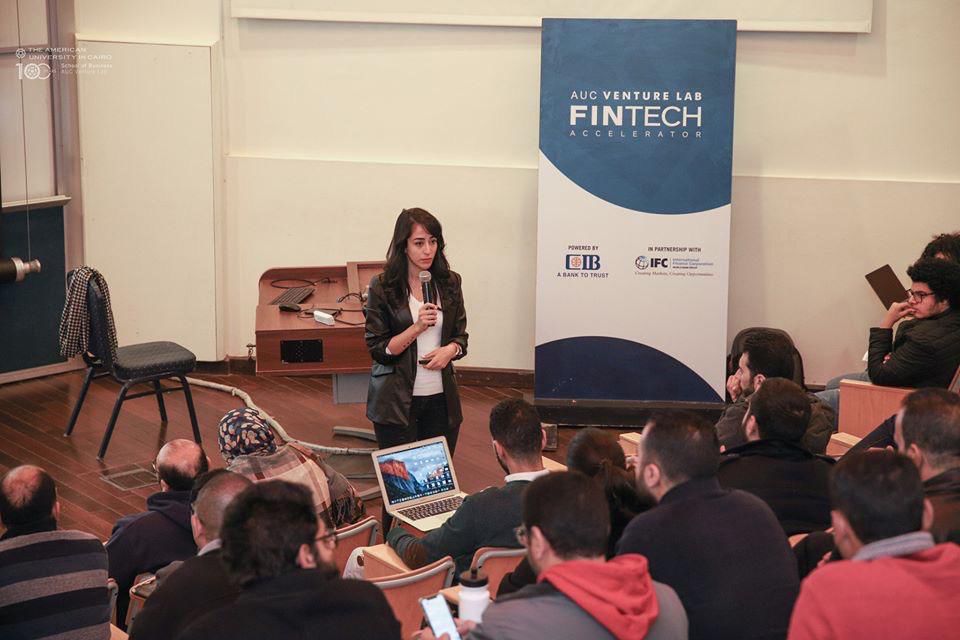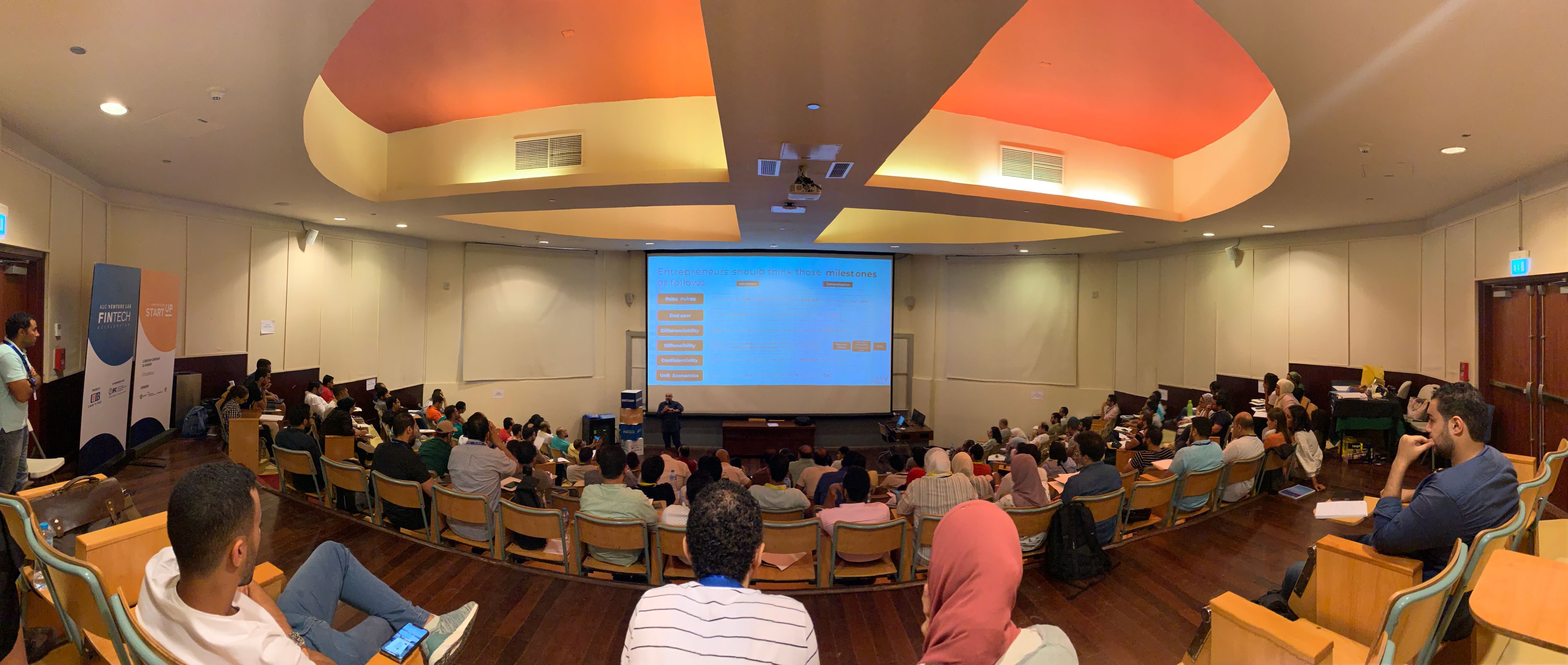Two Startups that are Changing the Future of Finance in Egypt

IFC's collaboration with the American University in Cairo's Venture Lab Fintech Accelerator has helped more than 35 fintech entrepreneurs launch new, innovative, and affordable financial products. This was done in partnership with the Kingdom of Netherlands.
By cultivating a fertile environment for Egyptian startups and entrepreneurs, the partnership created an investment-ready pipeline of fintech startups with the power to improve financial inclusion in Egypt.
Fintech has the power to improve both financial inclusion and inclusivity. It is reshaping financial services by providing access to fast and convenient digital transactions while making government services—like pensions—more accessible.
Over the past five years, Egypt has become home to a burgeoning fintech industry. According to the Central Bank of Egypt’s Egypt FinTech Landscape Report, $159 million was injected into Egyptian fintech and fintech-enabled startups in 2021, up from a mere $900,000 in 2017. The number of fintech deals, or investments in Egyptian fintech companies, has also increased—jumping from only three in 2017 to 32 in 2021, with average funding per deal increasing by about 16 times over the same period.
Nonetheless, Egypt’s fintech entrepreneurs need additional support to improve the investment-readiness of their startup. Strengthening Egypt’s entrepreneurship ecosystem—in particular, the fintech industry—is a strategic priority for IFC.
In 2019, IFC partnered with the American University in Cairo’s Venture Lab (AUC Venture Lab) Fintech Accelerator, Egypt’s first university-based accelerator. The partnership focused on creating an investment-ready fintech pipeline and improving the enabling environment for entrepreneurs. IFC provided technical assistance and a development grant to help AUC Venture Lab improve the services it offers to startups.

A participant speaks at the 2020 AUC Venture Lab Spring Bootcamp. Photo Menan Omar / IFC.
A participant speaks at the 2020 AUC Venture Lab Spring Bootcamp. Photo Menan Omar / IFC.
Through this partnership, IFC unlocked opportunities such as coaching, training, and mentorship for 35 fintech entrepreneurs to launch and grow new, innovative, and affordable financial products. The initiative also improved participants’ innovation and entrepreneurial skills, and leveraged private sector financing to scale their businesses.
One start-up that benefitted from the Fintech Accelerator is Subsbase, the first and currently only subscription and recurring revenue management platform in the Middle East and North Africa region. The company, which raised $2.4 million in seed funding in 2022, gained valuable knowledge and networking opportunities thanks to AUC Venture Lab.
The startup manages the whole subscription lifecycle—including invoicing, payments and notifications—for software as a service (SaaS) companies, and works with lending companies on the collection of installments and insurance premiums.
“We joined AUC Venture Lab at a very early stage of the company. At the time, this helped us validate our hypotheses about market needs and opportunities,” explains Sherif Aziz, Co-Founder and Chief Business Officer. “Our first beta customer was a fellow AUC Venture Lab startup,” he says.

Participants watch a presentation at the Fall AUC Venture Lab bootcamp. Photo: Menan Omar / IFC.
Participants watch a presentation at the Fall AUC Venture Lab bootcamp. Photo: Menan Omar / IFC.
Klickit, a startup that facilitates online school payments to save parents time, is another success story emerging from the AUC Venture Lab.
Saeed Talaat, Klickit co-founder and CEO, says that Klickit started when he and the cofounders, Hashim Ibrahim, Walid Abou ElNour, and Youssef Galal, participated in a university competition to introduce a new digital banking solution.
When Klickit joined the AUC Venture Lab in 2020 it had built a working platform but wanted feedback from experts and mentors.
“AUC Venture Lab helped Klickit identify real market opportunities and pivot its offering toward high-growth sectors, such as education. It also exposed Klickit to networking opportunities, which helped promote the company within the investment and fintech ecosystems, supporting Klickit’s growth journey."
After graduating from the AUC Venture Lab, Klickit signed a deal with GEMS Education, a global advisory and educational management firm, to provide digital payments for more than 6,000 students and 250 schools in 13 countries.

Two children walk to school in Egypt. Photo: Adobe.
Two children walk to school in Egypt. Photo: Adobe.
In 2021, Klickit partnered with the Egyptian Ministry of Education and with the country’s E-finance Group to launch an electronic payment service for public school fees across Egypt. Klickit has since successfully secured a portfolio of 55,000 public schools and 400 private schools. Klickit has recently partnered with EFG Hermes Corp-Solutions to help schools access financing during periods when there are tuition fee gaps.
Thanks to IFC’s partnership with AUC Venture Lab via the Fintech Accelerator, more than 35 early stage fintech startups launched new financial products, reaching more than 250,000 users and raising close to $7.5 million in additional financing. Though the collaboration with AUC Venture Lab has ended, IFC’s support played a critical role in encouraging young entrepreneurs and helping Egypt advance its financial inclusion agenda.
